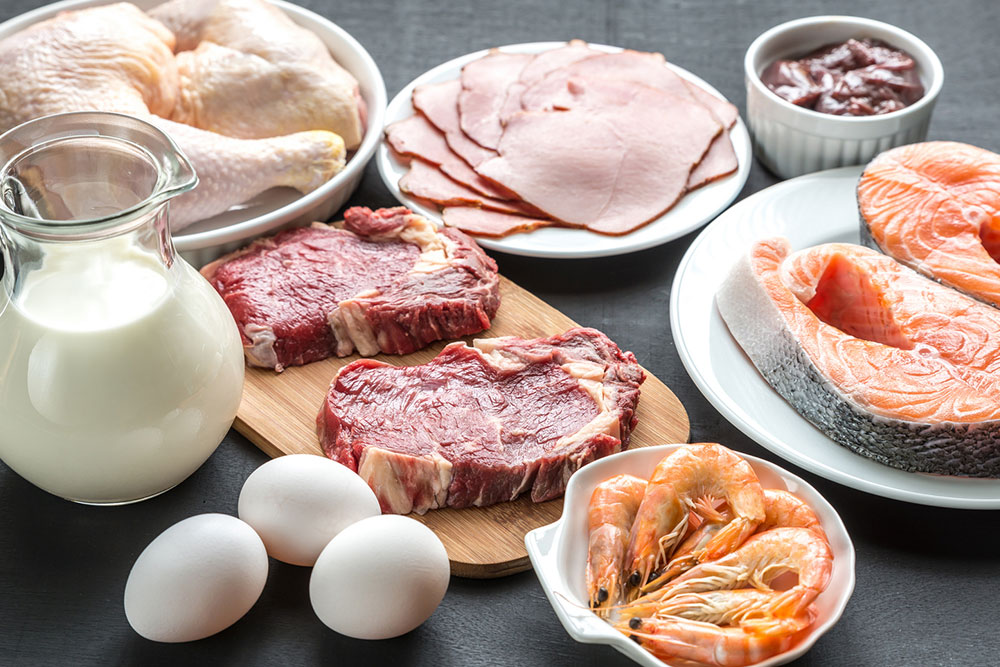5 types of health supplements to stay fit and healthy

Maintaining overall well-being requires eating nutritious meals, following a healthy lifestyle, and getting frequent health checkups. But these days, people also consider taking health supplements to improve their immune system, stay safe from diseases, and live a wholesome life. There are various types of supplements that one could take in this regard, with each boasting its benefits. However, speaking to an expert before including these in their daily consumption routines is essential.
Mineral supplements
Some individuals might require mineral supplements to manage and improve a deficiency.
Calcium
Calcium is one of the body’s most essential minerals for bone growth. The RDA of calcium is 1,000 milligrams for men and women between 19 and 51. Women aged 51 and older and men older than 70 may require about 1,200 milligrams of calcium supplementation daily. Apart from bone growth, calcium plays vital roles in muscle function and is essential for the nerves to carry messages from the brain to other body parts. It also helps maintain healthy blood pressure, complements hormone secretion, and contributes to maintaining stronger teeth. An example of where an expert may recommend calcium supplements is for people at risk of osteoporosis, a disease that may cause the bones to turn brittle and break.
Iron
Some people might suffer from poor blood oxygenation, which results in a weak immune system and fatigue. Individuals may benefit significantly from taking iron supplements, as this increases blood oxygen and improves their overall health. Experts suggest that men and women should get about 8 to 18 milligrams of iron daily. In a nutshell, iron supplementation improves immune function, energy levels, and brain function. It also helps boost the ability to concentrate and carry oxygen in blood.
Zinc
While individuals might require zinc supplements, they may have to take them in tiny amounts. The RDA for men is about 11 milligrams and around 8 milligrams for women. The mineral helps boost the immune system and also prevents the risk of infections like pneumonia. Other benefits of taking zinc supplements include improved memory, reduced cancer risk, and lowered chances of common cold symptoms.
Botanical supplements
Botanical supplements, also known as herbal supplements, are made from plants, plant parts, or plant extracts. They are intended to be consumed and contain one or more ingredients to supplement one’s meal regime.
Echinacea or primrose
Healthcare experts may recommend echinacea supplements to help strengthen the body’s immune system. It could help protect one against colds and flu and improve symptoms. Primrose supplements may contain naturally derived oil that contributes towards reducing the symptoms of arthritis and premenstrual syndrome.
Ginger
Herbs like ginger are usually preferred for their purported health benefits, including reducing inflammation or increasing energy. Its supplementation could help ease symptoms like nausea and vomiting caused by treatments for certain diseases. Studies also indicate that the herb in its supplement form might help ease the pain of menstrual cramps. Furthermore, ginger supplements may help reduce pain in some people with osteoarthritis.
Turmeric
Supplementation of turmeric is said to treat heart disease and even Alzheimer’s. There might also be certain health benefits for those with high blood pressure and cardiovascular diseases, but enough evidence is required. Athletes might benefit from turmeric supplements as they help ease joint pain in the knees and elbows.
Amino acids supplements
These supplements may contain nine essential or other non-essential amino acids. They are the building blocks of protein and could offer several benefits, such as supporting athletic performances and recovery. The body requires 20 kinds of amino acids to function normally. These combine in various ways to make proteins in the body. A few essential amino acids include histidine, leucine, isoleucine, lysine, and methionine. Other necessary amino acids include valine, phenylalanine, and threonine. Amino acids may help break down food, serve as an energy source, build muscle, boost the immune system, and grow and repair body tissue. It may also help sustain a normal digestive process, maintain hair and nails, and make hormones and brain chemicals.
Probiotic supplements
Live microbial (probiotics) are a combination of live beneficial bacteria and (or) yeast that naturally live in the human body. Those who take probiotic supplements may do so for their many healthy benefits, primarily to maintain a healthy balance in the body. The good bacteria support immune function and help control inflammation. Some individuals require probiotic supplementation to help the body digest food, create vitamins, and keep unhealthy bacteria from becoming uncontrollable and making one sick. Other benefits include helping to support the cells that line the gut to prevent harmful bacteria that an individual might have consumed from entering the blood. Probiotic supplements may also help break down and absorb prescriptions. However, one should consult a healthcare expert before initiating any supplementation.
Vitamin supplements
These supplements comprise one type of vitamin prescribed for individuals with deficiencies who need more of the element to maintain a healthy balance in their body. Below are a few vitamins one should know about.
- Vitamin A supplements help maintain healthy teeth, soft tissue, bones, mucous membranes, and skin.
- Vitamin B6 supplements, known as pyridoxine, help red blood cells form and maintain brain function. It also plays a pivotal role in the proteins that are part of several chemical reactions in the body.
- Vitamin B12 is essential for metabolism and helps form red blood cells. It also contributes towards maintaining healthier central and peripheral nervous systems.
- Ascorbic acid or vitamin C supplements is an antioxidant that promotes healthy teeth and gums. This vitamin also helps the body absorb iron, promotes healthier tissue, and is necessary to heal wounds.
Other supplements one might require include vitamins E and K, biotin, niacin, folate, choline, and carnitine. Some individuals may also benefit from pantothenic acid, riboflavin, and thiamine supplements. One must check with their healthcare provider before including any health supplements in their meal regime.